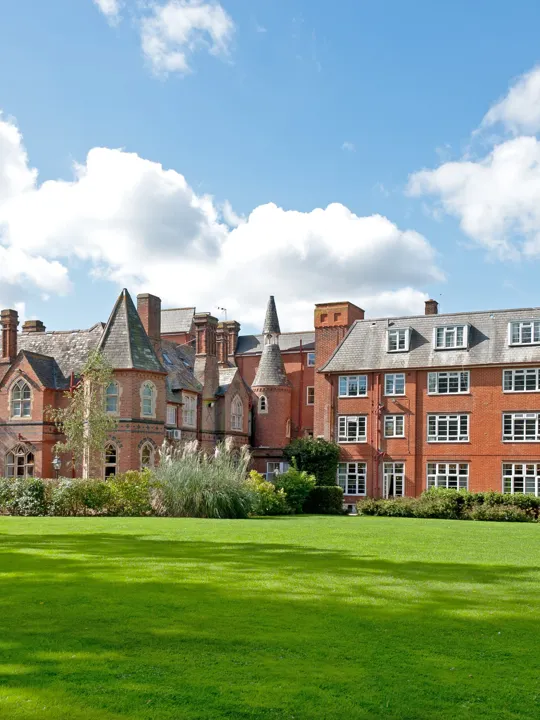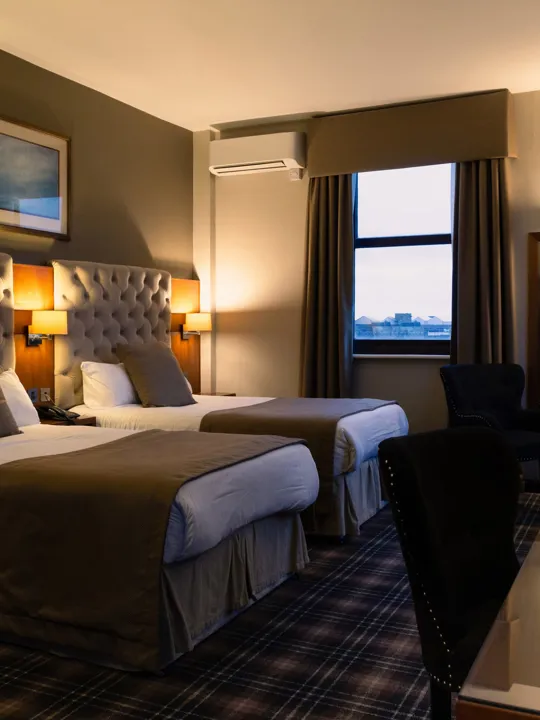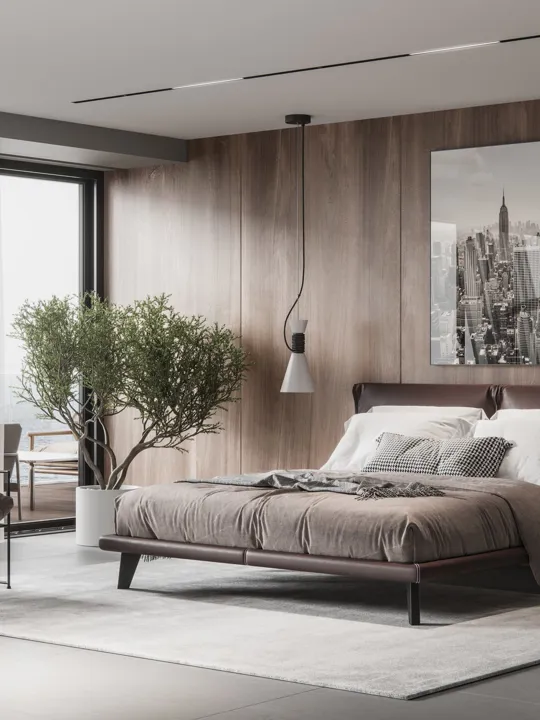The Different Types of Hotels
There are many different types of hotels around the world and they will each have their own characteristics. Hotels are often categorised by criteria such as size, style, location, target markets, levels of service, ownership model and concepts.
At cab Hospitality, we work with a wealth of different hotel clients every day, each with their own style and character, unique aims and curated marketing goals. We understand that each hotel has its own personality, its voice and its target market, and it's our job to ensure each of these hotels thrive within its category.
Below we’re going to look closer into different hotel types, as well as some of the more popular hotel types.
Chain hotels
One of the most common types of hotels is chain hotels. A chain hotel is a group of hotels owned by one brand or owner. They often follow guidelines on branding, layout, design, procedures and amenities throughout the chain. This means that consumers know what they are likely to get when they book with a chain.
They are often large companies, which translates into bigger marketing budgets and a more prominent brand image that is well-known to consumers. Chain hotels may often have a loyalty scheme or other member offers too, for those loyal guests that always return. Examples of chain hotels include Hilton, Marriott and Premier Inn.
Independent hotels
An independent hotel is not part of a group and therefore follows no procedures and guidelines that a chain hotel would. They are stand-alone and are usually owned by one person or co-owners, family or company that makes decisions for the hotel. They are typically smaller than a chain hotel and are usually more personable as well as having more unique features. You can find a huge amount of independent hotels across the UK, such as The Castle House Hotel.
Boutique hotels
Boutique hotels are unique in design, often with a particular theme or local influence. They can be part of a chain or independent and are usually decorated creatively and following a unique theme or motif. The size of boutique hotels varies, but they are typically under 100 rooms. These hotels make for a delightful quirky stay away from the typicality of a chain or well-known hotel. An example of a boutique hotel is The Bird in Bath.
Country house hotels
It’s likely that most people will have seen or stayed at a country house hotel. Country house hotels typically are old mansions or homes of some historical lineage that have been purchased alongside their ample grounds, usually in a scenic rural setting. Country house hotels are typically large with a variety of rooms and suites all decorated similarly to the origins of the house. This type of hotel stay makes for a truly elegant stay.
Country house hotels are also popular locations for weddings and other celebrations, boasting opportunities for lovely pictures, large open spaces, and the benefit of staying in the hotel once the celebrations come to a close. An example of a country house hotel is Stapleford Park Hotel.
Motels
Evolved as a term in the 1920s, and more of an American-dominated term, ‘motel’ is a blend of the words ‘motor’ and ‘hotel’. Motels were originally created to offer travellers an affordable and accessible place to stay in between long journeys. You can usually find a motel on a long stretch of highway in the States and they typically have very few amenities.
Motels are great for those on a budget looking for a flexible way to stay in between long journeys, and although not as popular in the UK, an example of a motel is Deangate Motel.
Bed & Breakfasts
Bed & breakfasts (B&Bs) are usually smaller and privately owned properties popular with travellers who prefer to get to know their destination like a local. Bed & breakfasts are usually charming and homely, sometimes with a unique theme. B&Bs, as their name implies, provide you with a place to stay and breakfast included. You can find a good B&B almost anywhere, but we’ve included The Hadley Bowling Green as an example.
Inns
An inn is a very well-known historical version of a hotel. Inns were first popularised around the 13th Century and were usually rural hotel-type establishments that allowed travellers to stay the night, buy food and drink and accommodate their horses while on the road.
In modern times, an Inn is slightly less common than a hotel. But if you do come across one, an Inn is usually a much smaller, cosier type of hotel, typically family-owned and offering their guests a more comforting and homely place to stay. An inn doesn’t usually boast a lot of amenities but you’ll likely be offered in-room tea and coffee, Wi-Fi and some minimal breakfast choices. You’ll often find inns above pubs and restaurants and an example of an inn is The Bear in Marlborough.

Resorts
A resort is a more exciting and abundant type of hotel that comes with a host of amenities and attempts to offer guests everything they could possibly need on their site. For example, the hotel resort will feature small shops, restaurants, eateries, and a selection of activities to keep guests entertained for the duration of their stay. It is not uncommon to find games, sports, and even water parks or adventure play areas in Resort hotels.
Resort vacations are often associated with terms like ‘all-inclusive’ and spas and provide their guests with absolutely everything they would need to enjoy their stay. An example of a resort hotel in the UK is The Headland.
Activity-specific hotels
Activity-specific hotels are hotels that boast specific activities for their guests, such as a spa hotel or tennis hotel. Further afield, ski resort hotels are another good example where guests can enjoy onsite or local activities as well as a luxurious stay. An example is Wickwoods Hotel.
Conference hotels
A conference hotel is a hotel that hosts conferences and other large-scale meetings. These kinds of hotels will offer large meeting and conference halls to host professional conferences. These hotels will also offer the opportunity to stay, as well as a bar or restaurant facility. An example of this is Edgbaston Park Hotel.
Star rated hotels
Everyone will have heard the phrase ‘3 star’ or ‘5 star’ when referring to a hotel. The star rating system is an internationally accepted indicator of a hotel’s quality, cleanliness and standards. The higher the star rating the more premium service and amenities you can expect. You can read more on the hotel star rating system here.
Extended stay hotels
Extended stay hotels are hotels that offer long-term accommodation for guests with amenities such as self-service laundry and in-suite kitchens. Extended stays are a cost-effective and convenient alternative to renting a traditional apartment and offer guests a home-away-from-home type of stay, similar to staying in an apartment.
Eco hotels
An eco hotel, also referred to as a ‘green hotel’ or a ‘sustainable hotel,’ is a type of hotel that focuses a lot on its environmental impact and puts a great deal of effort into operating in an environmentally friendly and sustainable manner. Eco hotels will usually promote green initiatives such as reducing waste, recycling, using solar panels, and much more.
A great example of an eco hotel is The Pig.
Pet-friendly hotels
Pet-friendly hotels, as you can guess from the name, allow you to bring your pet. There may be weight limits and breed restrictions, as well as the number of pets you can bring, but you can nonetheless stay in a pet-friendly hotel with your furry friend. An example of a pet-friendly hotel in the UK is Lumley Castle.
Gastro hotels
A gastro hotel is perfect for foodies. Gastro hotels are centred around providing guests with overnight accommodation as well as fantastic food. Gastro hotels are usually smaller and offer their guests exceptional menus and foodie events as well as a comfy room to stay in. Gastro hotels often have events running and great opportunities to sample seasonal and local foods within their restaurants. An example of this is The Crown Inn.
Micro hotels
Micro hotels are smaller hotels designed for people who need a place to sleep with very little else. Micro hotels have smaller rooms, fewer amenities and really just provide a comfy place to sleep at the end of a busy day. Perfect for budgeting travellers keen to save some money but still have an action packed stay. An example of this is the Hotel Pelirocoo.
Hostels
Hostels are cheaper lodging options that allow you to stay in dorm-style accommodations. Hostels are popular around Europe and provide travellers with a more budget-friendly place to stay where they can meet and mingle with other travellers. An example of a UK hostel is the YHA hostels.

Unique concept hotels
This type of hotel is really interesting and will vary from hotel to hotel. Unique concept hotels are exactly that - unique. Ice hotels, underwater hotels and other quirky and extravagant locations offer guests a stay like no other and provide a great story to tell friends, as well as some interesting pictures. As an example, we’ve included the Ice Hotel in Sweden.
Apart-Hotel
Apart-hotels are a flexible style of hotel that offers guests a more flexible style of stay where they can check in and out of an apartment-style room. This is for guests who want the comfort and convenience of their own apartment with additional amenities and the benefit of having a larger space while still having access to things like a reception desk and helpful staff.
Apart-hotels work the same as regular hotels in that you can easily check in and out and benefit from flexible booking. For example, Quest Hotels.
All-Inclusive Hotels
All-inclusive hotels offer everything included in the initial booking price. So once you’ve paid, your drinks, food and even some activities will be included in your stay without you having to pay separately when you get there.
All-inclusive hotels are fantastic for those looking to indulge and really make the most of the holiday and enjoy all the facilities and offers of the hotel or resort you’re staying at.
Airport hotels
An airport hotel is a hotel attached to whatever airport you are flying from. If you have a really early flight and have to travel from elsewhere, staying in the airport hotel is really convenient and allows you to get a good night’s sleep and prepare as best you can before the flight, avoiding the stress of excessive travel on the day of your flight. Most major cities and hotels will have associated airport hotels, such as the Radisson Blu Manchester Airport.
Suite Hotels
A suite is a type of hotel room that is significantly larger and offers guests more space as well as more features. A suite typically will include a sofa and lounge area, as well as better views or a nicer location within the hotel.
Suite rooms typically cost more and are more spacious and plentiful than a typical hotel room.
Serviced apartments
Serviced apartments are usually for longer-term leasing or renting where you sign a contract. Serviced apartments include everything you could need for a perfect home away from home where you can still benefit from friendly staff, reception, washing facilities either in your apartment or within the building, and other amenities.
A serviced apartment will offer a living, kitchen and bedroom space all in one compact location for a fixed price and can offer guests a flexible way to enjoy long-term stays. Most cities will have opportunities for service apartments, and often serviced apartments are a popular choice for students. An example is Pluxa.
Pop-up hotels
A pop-up hotel is a type of hotel that literally ‘pops’ up. They're usually smaller in size and only have a few rooms that are available to a select few guests who are in the know about the exclusive offer.
Pop-up hotels are smaller and designed to be mobile so that they can be easily moved to other locations. Yurts and tents are popular pop-up locations and they’re typically seasonal to take advantage of nicer weather and pleasant locations. Moreover, pop-up hotels are popular as they offer experiences found nowhere else. In fact, 78% of millennials would prefer to spend their money on experiences rather than material things, preferring to experience exclusive finds and unique experiences. You can learn more about pop-up hotels here.
As you can see there are a huge variety of hotel options available for consumers to indulge in, experience and enjoy. Next time you’re considering a stay, perhaps research a different type of hotel and take advantage of the wealth of choices available within the hospitality industry. Book a romantic stay at a resort hotel, spend a night in a unique boutique hotel, or try to find an Inn with a rich history.

We can help
At Cab Hospitality we work with a variety of exciting hotel brands. We understand the complexities of hotel marketing and have proven for each of our clients that we can offer exceptional results in increased brand awareness, customer loyalty, increased bookings and website traffic.
If you’re looking for quality hotel marketing services for your hotel brand, considering a re-brand or would like to know more about how cab Hospitality can help your hotel to succeed, please get in touch. We’d love to hear from you.